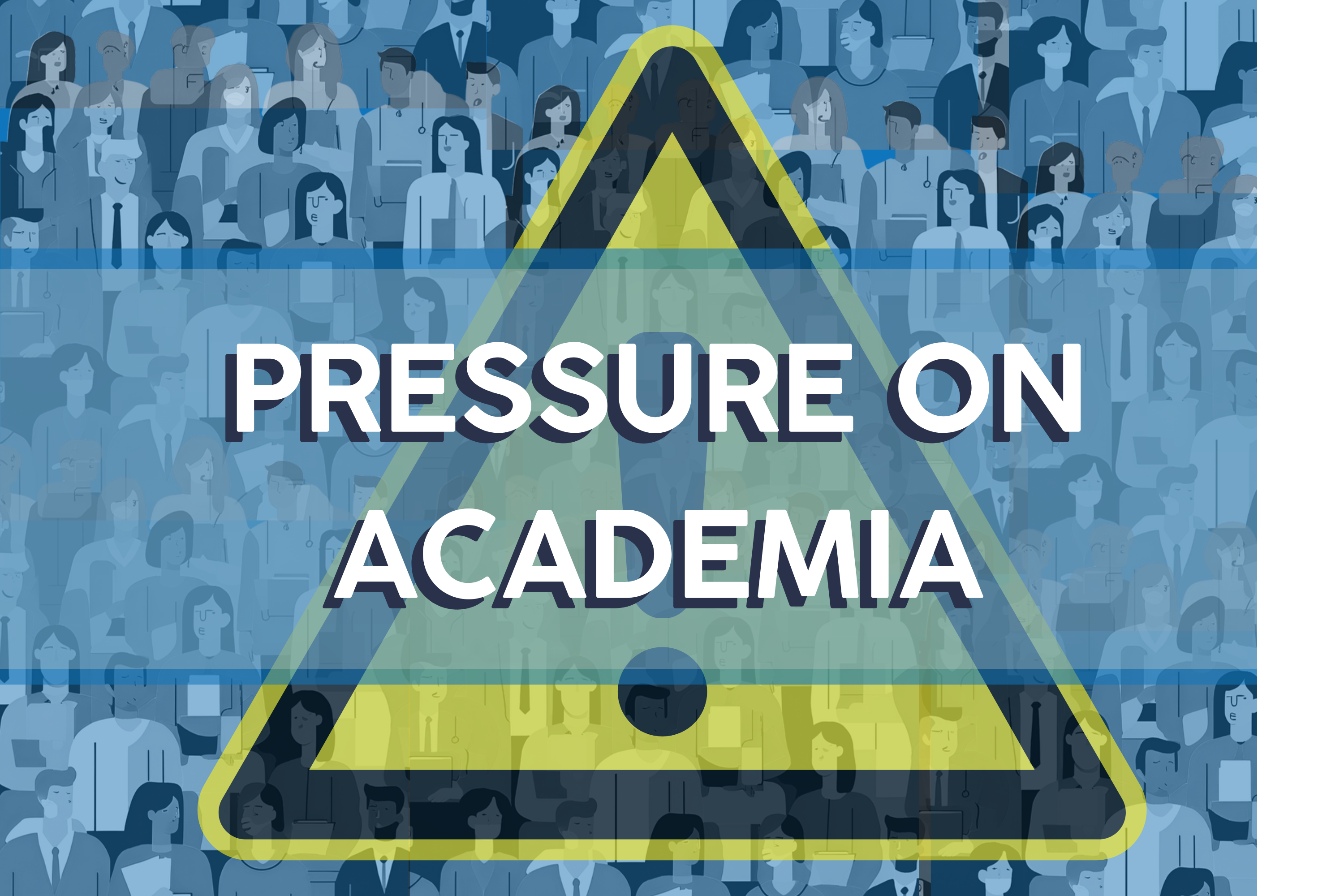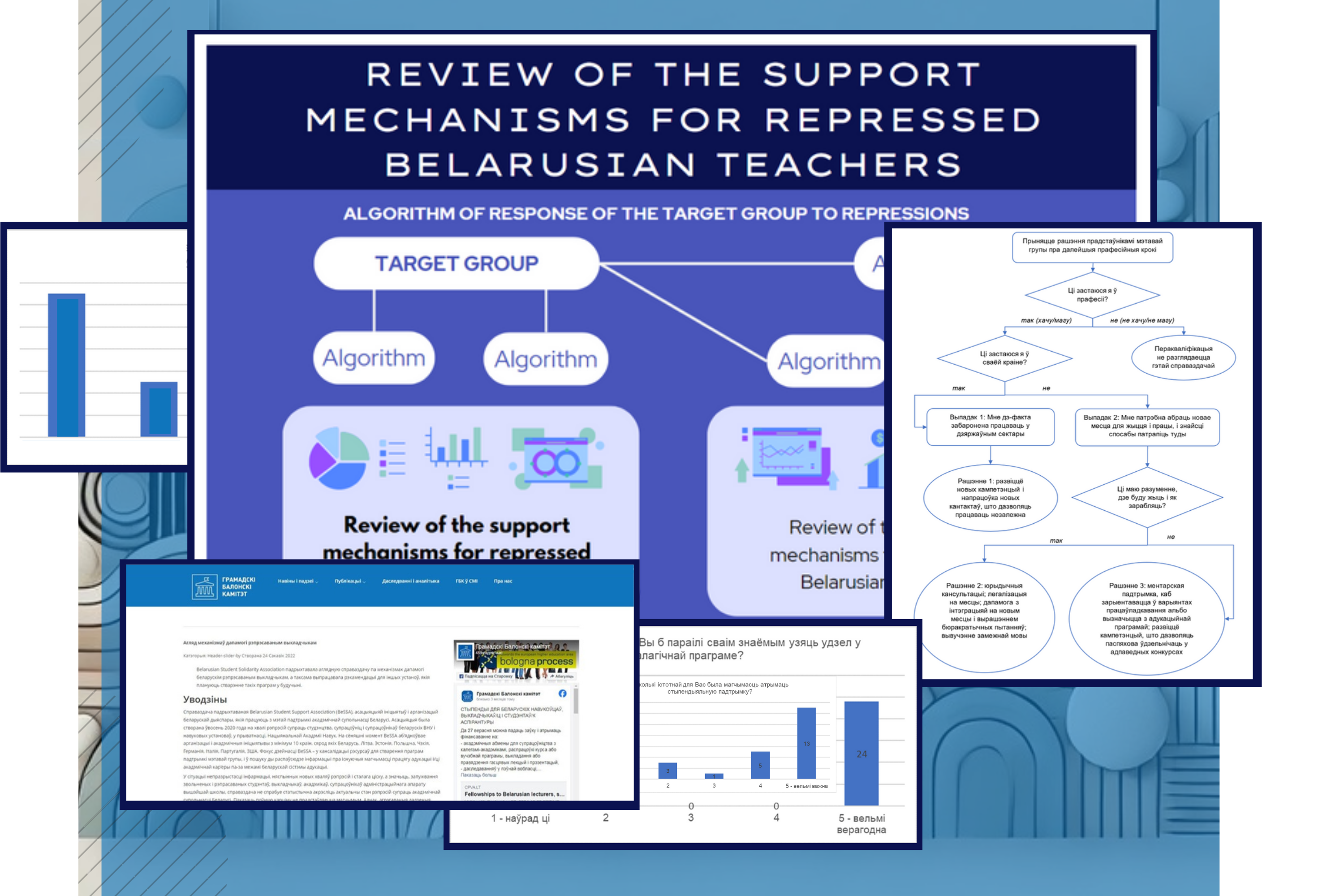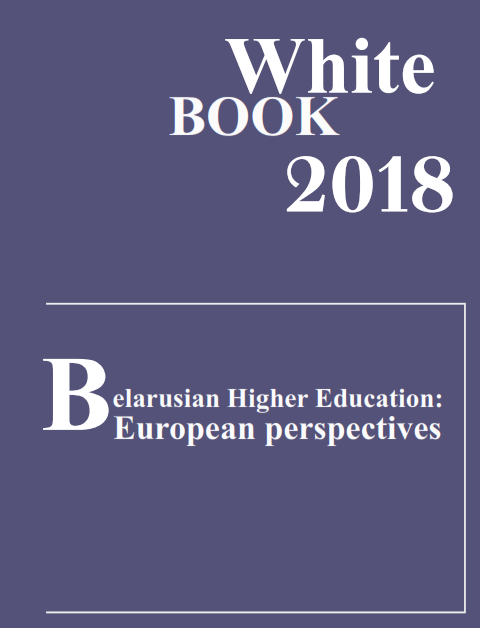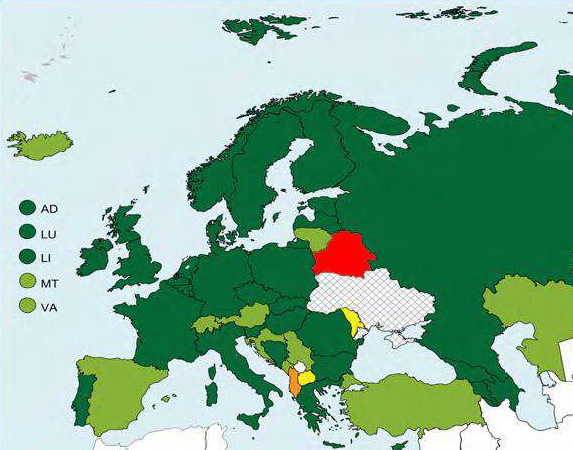Testimonials
- Details
- Header-slider-en
Despite promising statements condemning violence from some universities in August, even before the start of the school year it became clear that there would be pressure on active students and teachers. The Belarusian Students' Association prepared a review of the pressure on students over the previous academic year. Honest University published it's "University is not a prison" project in December 2021. We supplement this data with cases of fired teachers.
- Details
- Header-slider-en
The main outcome of 2021 was the approval of the new edition of the Education Code, which was supposed to create the basis for the Bologna reforms. Positive changes in the Code include the enshrinement of the norm of adding "Diploma Supplement" to the diploma in accordance with the European model after more than 10 years of promising. This is the only Bologna commitment that has been fulfilled almost fully.
Below we cite the selected parts of our analytical report, you can download the full report by clicking here.
- Details
- Header-slider-en
The report was prepared by the Belarusian Student Support Association (BeSSA), an association of initiatives and organizations of the Belarusian diaspora working to support the Belarusian academic community. The association was established in autumn 2020 in the wake of repressions against students, employees of Belarusian universities and research institutions, in particular, the National Academy of Sciences. To date, BeSSA brings together organizations and academic initiatives from at least 10 countries, including Belarus, Lithuania, Estonia, Poland, the Czech Republic, Germany, Italy, Portugal and the United States. The focus of BeSSA's activities is on consolidating resources to create programs to support the target group, and on finding and disseminating information about existing opportunities for continuing education and / or academic careers outside the Belarusian education system.
- Details
- Header-slider-en
The experts of the Belarusian Independet Bologna Committee has prepared the second White Book on Belarusain higher education. The analysis structure and methodology in the White Book follow the structure and methodology of the Implementation Report.
In 2011, preceding consideration of Belarus’ application to join the European Higher Education Area (EHEA), the Independent Bologna Committee, an initiative which included independent experts and civil society organisations interested in practical implementation of the Bologna Process values and tools in the national higher education system, was established in Minsk. In cooperation with the Belarusian National Platform of the European Partnership Civil Society Forum (EaP CSF) and in dialogue with European organisations and institutions, the IBC monitors modernisation of the Belarusian higher education system and advocates the interests of higher education stakeholders successfully using such tools as alternative reports, monitoring reports, policy papers, and recommendations.
In 2013, we prepared the first White Book. Reforming of the Belarusian Higher School in accordance with the aims, values and main directions of the European Higher Education Area policy in which we attempted to answer the question to what extent the Belarusian governmental education policy is compatible with the EHEA development strategy. However, our objective is not simply to state numerous problems of the Belarusian higher education system. We strive to outline a clear and well-founded action plan, which would enable our country to move forward along the path of modernising the higher education system decisively.
In 2015, Belarus was accepted to the EHEA upon undertaking to reform its higher education system according to the Roadmap. By 2018, the new Bologna architecture, other EHEA tools and values should have been formalised in the Belarusian laws. As our monitoring and the final report of the Bologna advisory group demonstrate, Belarus has not been able to make any significant progress in the Roadmap implementation. However, it is possible to understand the real condition of the Belarusian higher education system and its European prospects only in comparison with other EHEA members, their achievements and problems. In reality, implementation of the EHEA policy declared by ministerial summits, in various countries is not always successful and not equally successful in all aspects. The 2018 Implementation Report prepared for the Paris summit distinctly demonstrates this. he Ministry of Education of Belarus has provided some information for the report. However, as our analysis demonstrates, this information is incomplete and at times not absolutely reliable. he Independent Bologna Committee has prepared the second White Book European Prospects of the Belarusian Higher Education, which fills the gaps of the official report by the Ministry of Education and permits to compare Belarus’ implementation of the Bologna tools and principles with the situation in other EHEA countries.
The analysis structure and methodology in the White Book follow the structure and methodology of the Implementation Report (2018 IR) mostly to ensure maximum comparability of the results. In a number of sections of the White Book, we used other international and European databases as well, for comparative analysis of the value dimension of higher education in particular.
In some cases, comparative analysis becomes difficult because of significant differences in the statistical values calculated or of the lack of information in public access. he Belarusian higher education system lacks transparency. In recent years, its transparency has decreased. However, without rejecting critical assessment of the situation with the reforms of the Belarusian higher education system, the authors of the White Book considered it their duty to record positive changes in the educational policy and academic practice, and to appreciate the European prospects of the Belarusian higher education system in the challenges it faces.
The paper was prepared by a group of authors: the introduction was prepared by Vladimir Dounaev and Irina Dounaeva; chapter 1 by Vladimir Dounaev; chapters 2 to 5 by Olga Kryzhanovskaya; chapter 6 by Siarhei Vetokhin; chapter 7 by Andrei Laurukhin; chapter 8 by Pavel Tereshkovich; the conclusion by Vladimir Dounaev. The analysis of the regulatory framework was provided by Aleh Hrableuski.
- Details
- Header-slider-en
Belarusian Independent Bologna Committee (BIBC) and Ad Hoc Commission of Belarusian National Platform of the Eastern Partnership Civil Society Forum (EaP CSF) continue to monitor the implementation of the EHEA tools in the higher education system by Belarusian authorities.
In 2018 Belarusian Ministry of Education was able to make a number of milestone decisions in pursuance of Work Plan implementation, which had been postponed for a long time pending the approval of new Education Code. In particular, this is linked to slowly expanding academic autonomy of Belarusian higher education institutions (Educational Standards_3+).
However, the Work Plan 2018 tasks and targets were not ambitious and could not instigate significant reformof the higher education system. Despite this fact, even the modest tasks were not implemented in full. At the same time, it is important to note the implemenation of Bologna tools and values has not (yet) been supported within the highest political circles. President Alexander Lukashenko has repeatedly expressed doubts about benefits of Bologna process for Belarusian higher education.
The 2018 Work Plan implementation did not require amending legislation in general and still number of tasks remained to be done. In particular, the provisions on Belarusian education system transparency (Launching the information Internet portal/website raising awareness of a wide scope of stakeholders about the processes of the higher education system in the Republic of Belarus development and Bologna tools implementation; launching English language version of Belarus-ENIC website). The low level of transparency does not allow for obtaining the information on implementation of some of the 2018 Work Plan provisions. There is no publicly available information, or it is incomplete, or it is published with delays. Thus, transparency remains a challenge to which Belarusian higher education system is not able to answer yet.
Furthermore, Bologna reforms envisaged by Strategic Action Plan will require amendments to the Education Code. However, according to the Decree of the President of the Republic of Belarus from 4 January 2019 “On adopting the plan for preparing bills in 2019”, the adoption of the new Education Code is not listed in the legislative plan. In addition,there is also information from the Commission for education, culture, and science of the National Assembly’s House of Representatives that draft Education Code has not been passed onto them for review so far. As a result, the lack of legislative initiative can block the implementation of a number of Strategic plan provisions in the future.
The implementation of social dimension of higher education and fundamental academic values has not been reflected in Belarusian Ministry of Education plans in a way it was specified in Council of Europe Recommendations and EHEA Summits’ Communiqués.
The Belarusian government’s education policy aims at restructuring professional education by decreasing the higher education - proportion. However, this strategy doesn’t address the inclusiveness issues of higher education system. Higher education accessibility for underrepresented groups – will not? not improve and could even deteriorate due to removal of some of the old instruments enabling underrepresented groups to access higher education programmes. In addition, such approach is also not in compliance with the new European mechanisms of ensuring inclusivity.
The new annual Work Plans for implementing Strategic plan provisions should include detailed actions on Council of Europe Recommendations Rec/CM(2012)7 implementationt and introduce measurable indicators for increasing inclusiveness of Belarusian higher education.
READ THE FULL TEXT OF THE REPORT in English (PDF)






